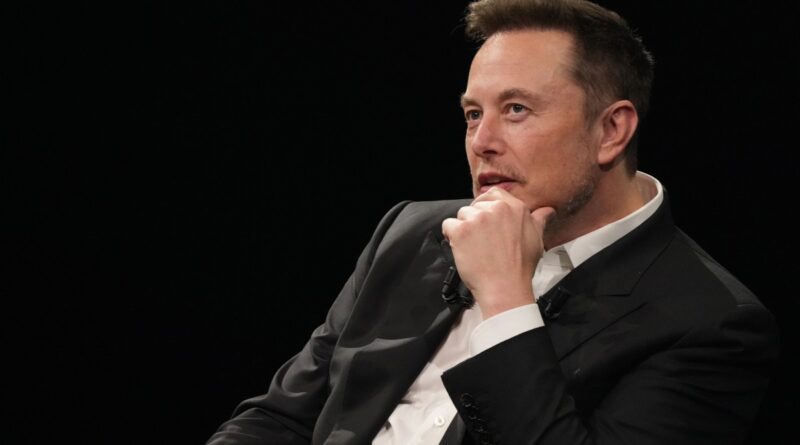AFP sues Musk’s X for refusing to enter news reuse payment talks
Elon Musk–owned X, formerly Twitter, is facing legal action brought under copyright law in France. The Agence France-Presse (AFP) news agency has announced it’s suing the social media platform over what it calls a “clear refusal” to enter into discussions with it about remuneration for the sharing of its news content on X.
AFP said it’s seeking an urgent injunction from a court in Paris to compel X to provide it with the necessary information on reuse of its content so it can calculate how much money it is due under France’s neighboring rights legislation.
“[AFP] has expressed its concerns over the clear refusal from Twitter (recently rebranded as ‘X’) to enter into discussions regarding the implementation of neighbouring rights for the press. These rights were established to enable news agencies and publishers to be remunerated by digital platforms which retain most of the monetary value generated by the distribution of news content,” the news agency wrote in a press release.
“Today, AFP announces that it has taken legal action to obtain an urgent injunction before the Judicial Court of Paris. This move is aimed at compelling Twitter, in accordance with the law, to provide all the necessary elements required for assessing the remuneration owed to AFP under the neighbouring rights legislation.”
“As a leading advocate for the adoption of neighbouring rights for the press, AFP remains unwavering in its commitment to the cause, even four years after the law’s adoption,” AFP added. “The legal proceedings initiated against Twitter today are in line with this ongoing commitment. The Agency will continue to employ the appropriate legal means with each relevant platform to ensure the fair distribution of the value generated by the sharing of news content.”
The extension of copyright law to cover excerpts of news content being reshared on digital platforms was agreed by the European Union back in 2019 and transposed into French law in July of the same year. But apparently Musk never got the memo. (Tbh, he was probably a bit more focused on building electric cars, firing rockets into space, digging big holes in the ground and trolling people on Twitter back then . . .)
The extension to EU copyright law covers article extracts and all but the shortest snippets of news content, which are shared on digital platforms. It isn’t limited to text either — also covering other content produced by news publishers, such as photographs, videos and infographics. News publishers’ content is covered for two years after its publication date.
Writing on X in a response to news of AFP’s lawsuit Musk wrote: “This is bizarre. They want us to pay *them* for traffic to their site where they make advertising revenue and we don’t!?”
Search giant Google has previously fallen foul of France’s neighboring rights legislation — after the national antitrust authority got involved following complaints by a number of publishers (including AFP) that it was failing to fairly negotiate with news publishers about payments for reuse of their content.
That antitrust probe led on to the competition authority issuing Google with a fine of over half a billion dollars a little over two years ago. Google subsequently settled the dispute by offering a set of behavioral commitments over how it would negotiation with publishers. And went on to ink multiyear deals with AFP and other publishers to pay them for reuse of their content.
In X’s case, a complaint it’s flouting the neighboring rights law seems less likely to trigger an intervention from the competition authority given how — unlike Google — the Musk-owned social media platform does not hold a dominant position in general search services. (Or even, arguably, in social media, where a number of rival platforms, including Facebook, Instagram and TikTok, have far more users.)
Google had also sought to directly circumvent the law’s requirement to negotiate licensing terms with publishers by announcing it would no longer display any of their news snippets across products such as Google Search and Google News unless they granted it free reuse of their content.
That unilateral attempt to escape the law’s effect triggered a swift response from the competition authority for suspected abuse of a dominant position — including issuing Google with an interim order barring it from stopping displaying publishers’ news and mandating it enter into discussions about remuneration.
The EU is not the only region where digital platforms are legally required to enter talks with publishers to remunerate for news reuse. Australia passed a news bargaining code targeting Google and Facebook back in 2021. While Canada’s parliament recently passed the Online News Act, which also requires tech platforms negotiate with publishers in order to establish “fair revenue sharing” over their content.
However, in the latter case, Meta and Google continue to lobby against the measure and have suggested they will end news availability in Canada, rather than comply with the law. The pair also took similarly aggressive steps to lobby against the measure in Australia — and push for amendments — ahead of lawmakers confirming the country’s news bargaining code.





